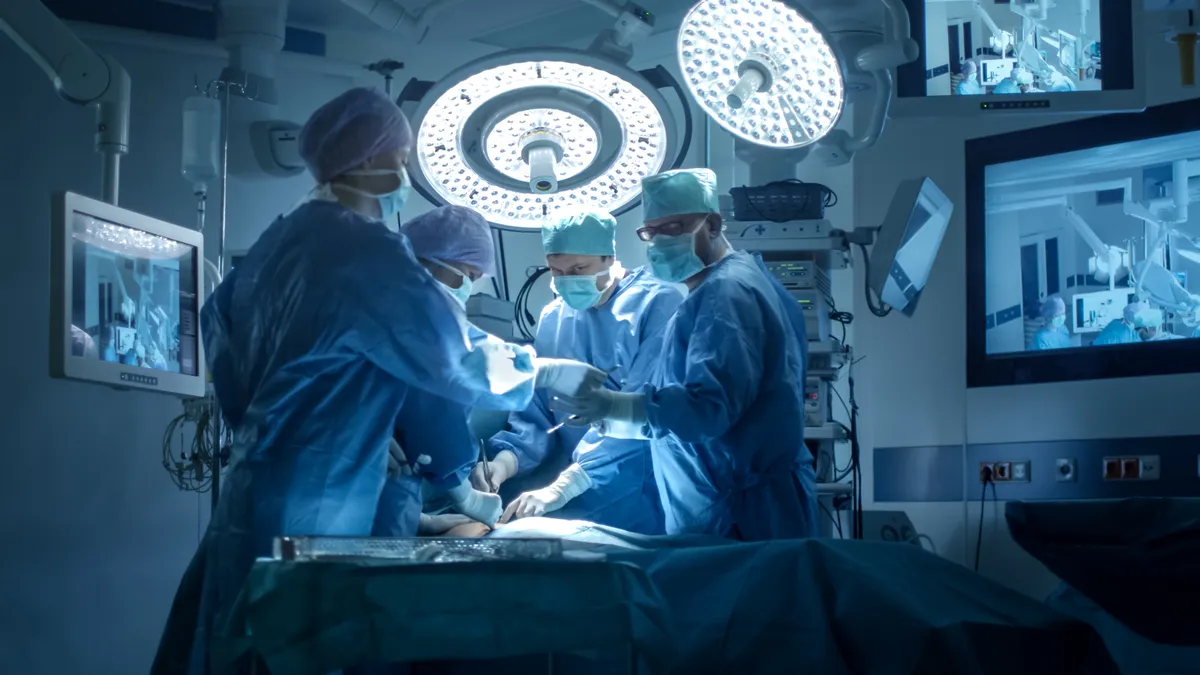Dive Brief:
- Hospitals continue to face staffing shortages and financial constraints, but the majority expect the situation to improve next year, according to a survey of 40 executives and purchasing directors at hospitals by BTIG.
- Three-fourths of hospitals said procedure volumes are still being affected by staffing shortages, but more than half expect to return to full capacity in 2024.
- Half of the hospitals said their 2022 revenues were the same or lower than pre-COVID levels. But two-thirds expect revenues to increase this year, and most hospital executives plan to increase their capital equipment budgets in 2023 and 2024, the survey found.
Dive Insight:
Hospitals have been taking a close look at their budgets as staffing and supply costs rise, which can affect large purchases of medical equipment.
As a result, most hospitals continue to ask device vendors for price reductions and payment flexibility, BTIG analysts found in their survey. What this means for medical device manufacturers depends on the company.
Stryker, which makes orthopedic and neurotechnology devices, said in January that orders of its products had not been affected. The company reported double-digit sales growth in its medical, endoscopy and instruments divisions, and reported record installations of its Mako surgical robot in the fourth quarter of 2022.
“We are not seeing any cancellation of orders,” CFO Glenn Boehnlein said in a January earnings call, adding that because most of Stryker’s equipment produces revenue for hospitals, “you wouldn’t expect any kind of slowdown.”
Intuitive Surgical, whose da Vinci robot is used for colorectal, gynecological, urology, heart and general surgeries, said placement of its robots decreased in the fourth quarter of 2022 compared to the prior year. CFO Jamie Samath, during a January earnings call, said this reflects “cautious capital spending” by customers given the current macroeconomic environment, but added that da Vinci remains “a relatively high priority” in their capital budgets.
Some types of procedures are running at full capacity, including colonoscopies, endoscopies, cath lab procedures, and orthopedic, cardiac and spine procedures, according to the survey. Volumes are still lagging for general surgeries, elective procedures, and plastic, cosmetic and bariatric surgeries.
Hospitals said that facilities, IT and software products, and surgical equipment were their top capital spending priorities for 2023 and 2024, which could be good for “large, diversified” medtech companies including Boston Scientific, Stryker and Medtronic, the BTIG analysts wrote in a Monday research note.
“Spending on cath lab equipment is expected to become more important this year, a plus for companies focused on interventional, structural heart, and possibly electrophysiology procedures,” they added.
Testing, patient monitoring and telemedicine equipment were less of a priority in 2023, which could have implications for companies including Hologic and Masimo, the analysts said.
There is one silver lining: of the 30 executives who said their hospitals were being affected by staffing shortages, all of them expect procedures to return to full capacity by 2025.











